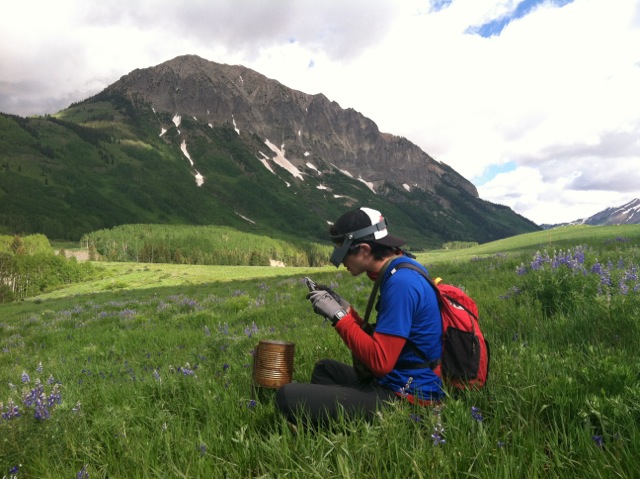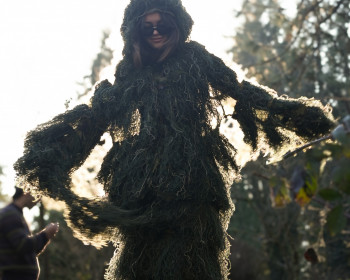Intern Profile: Peter Innes ’15
Meet Peter Innes ’15, a biology major and intern with the Rocky Mountain Biological Laboratory.
Open gallery

Peter Innes ’15
Major: Biology
Hometown: Bloomington, Indiana
Can you tell us what you’re doing this summer? What are your basic duties as an intern?
As a research assistant I have many tasks and am given a refreshing amount of responsibility and independence. Every day Sophia (the other research assistant) and I collect census data on either the beetles or the rodents they depend upon for reproduction. This involves biking to the field sites, checking each trap for beetles or rodents and then measuring, sexing, marking, and releasing the animals. There are also many miscellaneous tasks inherent to conducting field research. For instance, I wired beetle traps to some aspen trees in town, then sifted dirt and weighed out frozen mice for our beetle experiments in the lab. It doesn’t sound too glamorous, but I really enjoy having my tasks vary day to day. Unvaryingly, however, we work outside with bird songs and the rush of the East River in our ears, surrounded by wildflowers and peaks still speckled with snow.
How has Lewis & Clark supported you in the process of finding, securing, and funding your internship?
I most likely wouldn’t have received the research assistant position if it hadn’t been for Paulette Bierzychudek, William Swindells Sr. Professor of Natural Sciences. It turns out she used to be Smith’s mentor at RMBL many years ago. I also wouldn’t have been able to work at RMBL this summer if it hadn’t been for Lewis & Clark’s generous support. Eight weeks of housing and “station fees” at RMBL costs roughly $2,000. The Miller award not only covers my living costs but also compensates me generously for every hour I work.
How do you see this internship leading to a career in your chosen field and aiding in your overall career development?
I’d be lying if I told you I was anything but a greenhorn in field biology. After declaring a biology major my sophomore year, I knew I wanted to explore alpine ecology. RMBL is perhaps the most renowned station in the country for said field, so I feel incredibly lucky to be involved with work being done here. In just the short time I’ve been here, it’s safe to say I’ve fallen in love with field biology. Besides getting hands-on experience working in the field, I am surrounded 24/7 by researches and other students who are just as passionate about field ecology as I am…and way more knowledgable. I get to see firsthand what it takes and what it means to be a field biologist, and my peers and mentors are more than willing to answer questions and provide guidance. Plus, you’d be hard pressed to find a better place for making graduate school connections.
Is there anything else you’d like to tell us about your experience thus far?
Also, the world-class trail running and mountain biking is a plus. The altitude should whip me into shape for the coming cross country season!
The purpose of the Miller Summer Internship Award is to underwrite or supplement expenses of students at Lewis & Clark College who are engaged in scientific research internships in the mathematical and natural sciences. This opportunity is made possible by a generous grant from the Miller Foundation.
More Newsroom Stories
Public Relations is located in McAfee on the Undergraduate Campus.
MSC: 19
email public@lclark.edu
voice 503-768-7970
Public Relations
Lewis & Clark
615 S. Palatine Hill Road MSC 19
Portland OR 97219

